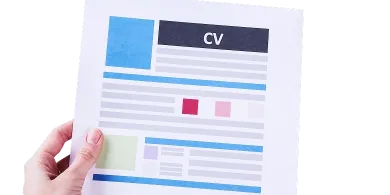Table of contents
 Thinking of getting a job or change your current workplace? Then, you’re definitely in the right place.
Thinking of getting a job or change your current workplace? Then, you’re definitely in the right place.
As you may know, the process of applying for a new job is pretty much the same in every working area.
Therefore, the sooner you learn necessary strategies from figuring out your value, as an employee to negotiating the deal, there would be fewer chances for your failure.
Creating a powerful resume makes half of the success since it represents your candidature before you can actually meet with the employer one-on-one. Wherever you apply for the desired job, there would always be other worthy job candidates, who have similar educational or job backgrounds.
Therefore, to win this “competition”, your resume has to be focused on specific unique qualifications that help you stand from the crowd.
Don’t forget about LinkedIn. Statistics show the majority of HR managers tend to look through their applicants’ social network profiles (primarily LinkedIn) and take the shown information under the account.
They admit: job hunters with a creative and serious approach towards resume and LinkedIn profile writing have better chances of being applied.
In both cases, you may always turn to professionals, such as the Resume Writing Lab.
Do you believe employers hire anyone with useful skills, obtained higher education, and past job experience? Certainly, some of those qualifications are crucial, although they are just contributing to something that the employer is actually interested in.

And what he’s really interested in is the company’s productivity.
Remember: the initial goal of any job hunter is to prove that you can increase sales and reduce expenses or get rid of any possible risks.
Look at the list of your qualifications and think of the working area that suits you best.
Search for the companies that need specialists like you; though consider the working environment (industry, type of products/services, position), where you would work the most productively. Use various social networks and special databases, like LinkedIn and Hoovers, to make the research even faster.
By that we mean start prospecting for any job opportunities. Certainly, browsing Internet web pages, social networks, and job boards might be helpful and lead to some perspective outcomes, but it doesn’t mean you should try personal networking.
Attending various workshops, symposia or any professional events in your local area is always beneficial. Don’t forget about your fellows and former college peers – network wherever it’s possible!
Sometimes employers have doubts about certain job applicants, who seem to have only a minimum of necessary job qualifications required.
They usually make calls to those people and ask a few questions to determine whether he’s applied for further selection or not. Make sure that you have an effective resume profile statement that leaves no doubt to the hirer.

Employment gaps, lack of necessary skills make your candidature vulnerable and cause the employer’s concerns. Nevertheless, it’s not the reason for getting upset.
After all, nobody’s perfect and all you can do is lower your red flags through other strong aspects of your past professional experience if you know how to do it ahead.
If you come to the interview and your statements greatly differ from the information in your resume, then where is the actual truth?
Your interviewer would definitely suspect you of dishonesty, even if you’ve mistaken yourself by chance. Surf online and find useful articles about the job interview tips from professional coaches and figure out possible questions you could be asked. Come prepared, though it doesn’t have to seem like you’ve been learning answers by rote.
Do the negotiation when the competition is done, then you have much wider borders to sell yourself in terms of making more profitable negotiations. Be concrete and make objective criteria instead of vague wants.